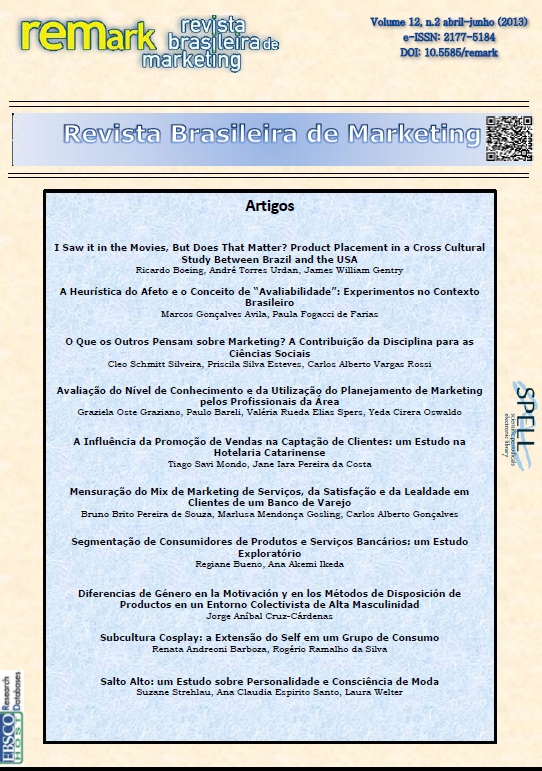The Affect Heuristic and the Concept of "Evaluability": Experiments in the Brazilian Context
DOI:
https://doi.org/10.5585/remark.v12i2.2487Keywords:
Heuristics, Affect, Evaluability, JudgmentAbstract
Recent literature has discussed the concept of affect as a judgment heuristic: affective responses tend to occur rapidly and automatically and serve as mental shortcuts in decision processes (Slovic et al, 2002). Bateman et al. (2007), examined the role of affect in determining judgments and decisions and described experiments demonstrating that the introduction of a small loss as a component of a game increases its attractiveness. In this study we replicate these experiments with similar results and discuss the concept of evaluability (Hsee, 1996, 1998, Slovic et al., 2002 and Bateman et al., 2007) to explain these findings. In general, the results demonstrate the importance of contextual factors in determining affective impressions and provide support to the related proposition regarding the importance of the heuristic of affect in judgment and decision-making.
DOI: 10.5585/remark.v12i2.2487
Downloads
Downloads
Published
How to Cite
Issue
Section
- Abstract 502
- PDF (Português (Brasil)) 192








